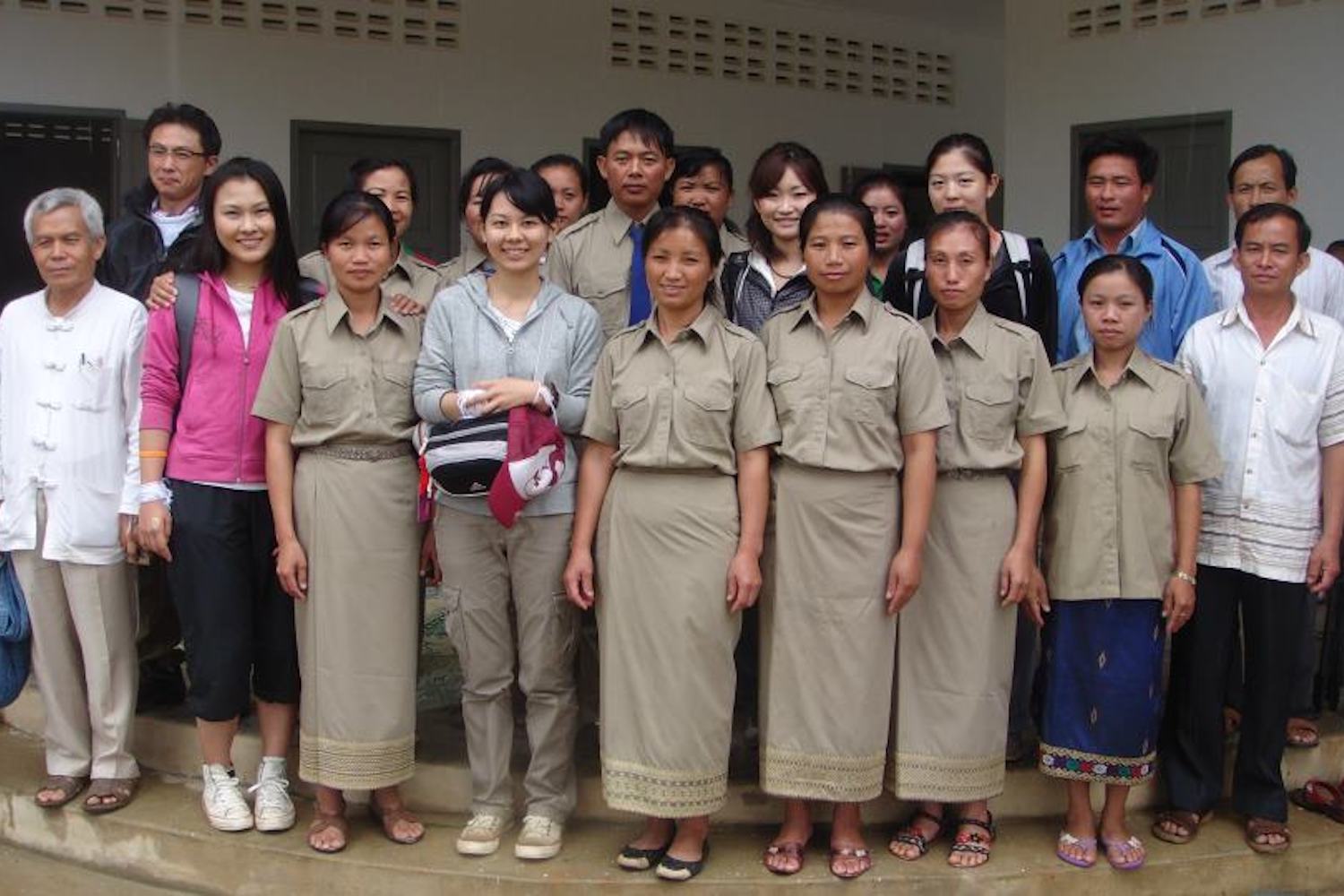Radio Free Asia: (28 October 2013)

A European parliamentary delegation has expressed dissatisfaction with the Lao government’s explanation over the disappearance of prominent local activist Sombath Somphone, who was last seen 10 months ago being stopped in his vehicle at a police checkpoint in the Lao capital Vientiane.
The second European Parliamentary visit to Laos this year came as rights groups urged sustained pressure on Vientiane to secure the safe return of Sombath, a rights campaigner who had been critical of the government’s policies for the poor.
The four-member parliamentary group, led by the chairman of the European Parliament’s delegation for South-East Asia, Werner Langen, met with a number of Lao officials and ministers on Monday, including Phongsavath Boupha, head of Laos’ national steering committee on human rights.
Langen told RFA’s Lao Service that his delegation had held “frank” discussions on the Sombath case with Lao officials, but that little progress had been made.
“The ministers said, ‘We don’t have an answer for where Sombath is now’,” Langen said.
“I said to the ministers, ‘We need a lifeline. Could you give us from the government side a lifeline?’ But the answer was not clear.”
Langen said that the delegation would present a report on its findings to the EU subcommittee on human rights and to the foreign affairs committee before “we decide the next steps.”
“We need, in the next month, a clear sign. But our impression is that … Laos could be isolated in ASEAN (the Association of Southeast Asian Nations) if the human rights situation is not clear—if it does not get better.”
German news agency Deutsche Presse-Agentur reported that while Langen stopped short of threatening to penalize Laos, he did say that the EU had shortlisted Sombath for its prestigious Sakharov Prize for freedom of thought.
Joint letter
In a joint letter last week, rights groups Amnesty International, Christian Solidarity Worldwide, International Federation for Human Rights and Human Rights Watch called on the EU to “use all its leverage to ensure Sombath’s safe return.”
“The EU must also urge the Lao government to answer the many outstanding questions around Sombath’s disappearance and to establish an independent commission, ideally with international involvement or support, to investigate the case,” they said.
Sombath Somphone has been missing since Dec. 15, 2012, when he was stopped at a police checkpoint in Vientiane. He was then transferred into another vehicle, according to the surveillance video. No one has seen him since.
Lao officials say they have no knowledge of the whereabouts of the prominent civil rights activist, a winner of the 2005 Magsaysay Award.
Some foreign diplomats in Laos had told RFA’s Lao Service recently that Sombath may have been abducted by groups linked to the government and possibly killed for his relentless campaign to defend the human rights of the poor rural population and to protect the environment.
The rights groups in their letter said Sombath’s disappearance “has sent a chilling, intimidating message to the country’s already fragile civil society” and called on the EU to demand that the Lao government guarantee “a more enabling environment for human rights defenders.”
They said that “significant progress” in the Sombath case “must be a prerequisite of Laos’ candidacy for the UN Human Rights Council,” which the country has expressed hopes to join for the 2016-2018 period.
“In the country demonstrating the fastest growth in Southeast Asia in 2012, the work of civil society, including individuals like Sombath, is critical in ensuring human rights are not sidelined during Laos’ rapid development,” it said.
EU pressure
The EU is one of the largest donors to Laos, an impoverished and landlocked country that is rich in natural resources.
Its members of parliament have expressed concerns over the Sombath case before.
In August, Danish member of parliament Soren Bo Sondergaard led a delegation to Laos to pursue the investigation and found that Vientiane was “still in a state of denial” about the activist’s disappearance.
He threatened to block the country’s bid for a seat on the U.N.’s Human Rights Council or to upgrade its status as a least-developed nation so that it would fail to qualify for aid.
Lao authorities have denied knowledge of his disappearance, claiming an investigation has failed to establish who was behind it and suggesting the activist had been the victim of a business feud, without providing any evidence.
Over the weekend, Sombath’s wife, Singaporean Ng Shui Meng, appealed to the Lao authorities, promising that her husband would leave the country and retire with her if he was returned safely.
In a report by The Age newspaper in Australia, Ng said she no longer wanted to see Laos’ image and credibility damaged over the abduction.
“All I want is only the safe return of Sombath,” she told Fairfax Media.
“He is an old man who is in need of medical attention. Once he is returned I will take him out of the country for medical care and we will live out the rest of our lives in quiet retirement.”
She said that every day since his disappearance has been “an eternity of waiting, wavering between hope and despair.”
Reported by RFA’s Lao Service. Written in English by Joshua Lipes.
